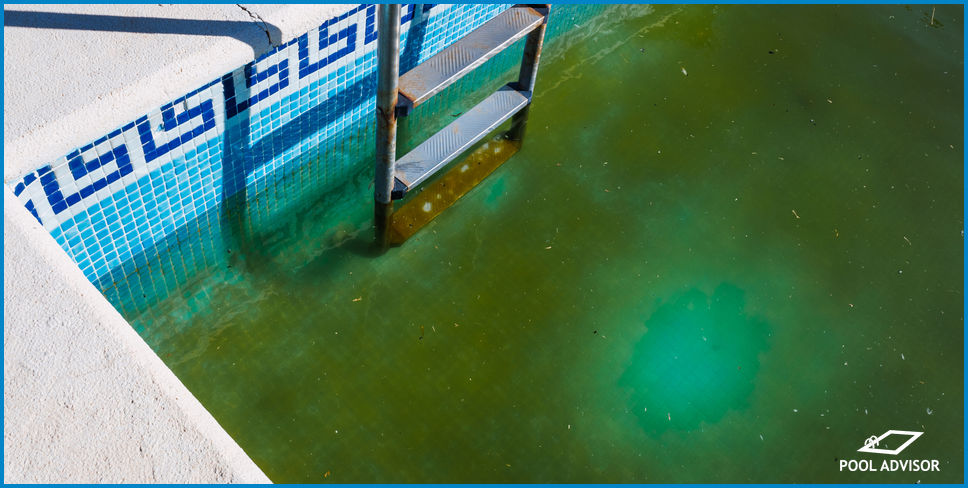
How To Remove Algae Stains From Pool Walls - Complete Guide
Algae stains can be a discouraging condition to find accumulating on the walls of your pool. Because algae infestations take lots of time and money to eradicate, learning that the dead algae left behind can form stains is a source of irritation for many.
Luckily, removing green or black algae stains from your pool walls does not have to be a complicated process. In fact, even in the most severe cases of algae staining, only a few easy steps are required for treatment.
In this article, we will discuss how to identify algae stains and our top advice for how to remove black or green algae stains from the walls of your pool.
Identifying Algae Stains
Algae stains are caused by leftover traces of dead algae that can appear black, green, or brown. This organic material can slowly combine with small amounts of dissolved minerals in your pool and harden into a type of discoloration known as an organic stain.
Because algae stains are the result of algae that is already dead, these stains do not respond to shock treatments or the use of algaecide products. Most of the time, a stain removal treatment is required to remove algae stains from pool walls.
Although algae stains can be firmly attached to your pool walls, they are not as immune to scrubbing as more serious types of stains, such as scale or those caused by metals. We recommend that you make sure the stain you are observing is indeed caused by algae before investing time or money in a removal treatment.
To test your stain, you will want to perform a scrub test. We recommend using chlorine granules and a stiff bristled brush, such as a wire brush if you have a suitable pool lining.
When scrubbing an organic or algae stain, eventually small pieces of debris will break loose. If the stain is composed of metals (like copper or iron) on the other hand, it will be nearly impossible to create any change in the stain’s appearance by scrubbing it.
How To Remove Algae Stains
When working to remove algae stains from your pool walls, we recommend using an organic stain remover.
Stain removal products can be added to your pool’s water and then left to stand for a certain period of time in order to remove stains without the need for lots of scrubbing or draining the pool.
One of our favourite products is Lo-Chlor Multi Stain Remover, which works on algae stains as well as those caused by other conditions. To use a stain remover, always follow the instructions provided by the product manufacturer.
This multi-stain remover, for example, requires that your pH be reduced slightly to levels around 7.0, and prefers the lowest amount of chlorine possible, with 1.0 parts per million or less.
You may need to add acid and a chlorine remover to your pool to achieve this.
To treat your entire pool, you will want to dissolve this stain remover in a bucket of water and then distribute it around the perimeter of your pool without the pump running. Leave the pump shut off for the duration of the stain removal process, which should be indicated on your product label.
After using a stain remover product, you may want to vacuum your pool to remove any debris that has settled at the bottom of your pool. You will also need to restore your chlorine and pH levels back to normal.
As an alternative, consider using a dedicated black spot remover, which is a chlorine product designed specifically for black spot algae removal.
Conclusion
Algae staining is the last thing any pool owner wants to deal with after ridding their pool of an extensive algae infestation. Algae treatments can often seem like an uphill battle, so having these infestations leave discoloration behind even once they are dead can be a real annoyance.
Luckily, algae stains of all colours (whether black, green or mustard) can be removed easily with the use of a stain removal product that is capable of removing organic based stains.
Do you have any questions about how to remove green or black algae stains from your pool walls? Leave us a comment down below!

Louis
A chemical engineer by trade, Louis is committed to debunking myths in the pool industry by explaining the underlying chemistry and making it accessible to all.
